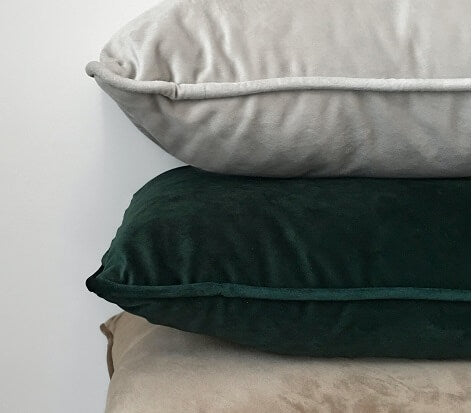
The transition to a ketogenic diet can be difficult, and sometimes it can lead to the uncomfortable side effect of keto insomnia. This can be frustrating and make the transition even harder, and many people wonder how long this insomnia will last. In this blog post, we’ll discuss coping strategies for keto insomnia during the transition period and how to help ease the process. So if you’re asking yourself, “How long does keto insomnia last?”, read on for answers and tips for getting through it.
Understanding Keto Insomnia
Insomnia is a common sleep disorder that can occur during the transition to a ketogenic diet. It is characterized by difficulty falling asleep, staying asleep, or experiencing restless nights. Understanding the root causes of keto insomnia is crucial in finding effective coping strategies.
One possible explanation for keto insomnia is the hormonal changes that occur when you switch to a low-carb, high-fat diet. When you restrict carbohydrates, your body enters a state of ketosis, where it burns fat for energy instead of glucose. This shift in fuel sources can disrupt your body's normal sleep patterns.
Another factor to consider is electrolyte imbalances. When you limit carbohydrates on a keto diet, your body excretes more water and electrolytes. This can lead to dehydration and a deficiency in minerals like magnesium, potassium, and sodium, which are crucial for healthy sleep.
Additionally, some individuals experience keto insomnia due to the initial withdrawal of sugar and processed foods. These foods can have addictive properties, and cutting them out can cause temporary sleep disturbances as your body adjusts.
Understanding the underlying causes of keto insomnia can help you navigate through this challenging period. In the following sections, we will explore factors that affect insomnia on keto and provide practical strategies for managing and improving sleep quality. It is also rare but there is also altitude insomnia to look out for so stay tuned!
Factors Affecting Insomnia on Keto
The transition to a ketogenic diet can have a significant impact on your sleep patterns, and several factors can contribute to keto insomnia. One factor is the fluctuation in hormone levels that occurs when you switch to a low-carb, high-fat diet. These hormonal changes can disrupt your body's natural sleep-wake cycle and make it difficult for you to fall asleep or stay asleep.
Another factor that can contribute to keto insomnia is electrolyte imbalances. When you restrict carbohydrates on a keto diet, your body excretes more water and electrolytes, which can lead to dehydration and a deficiency in important minerals like magnesium, potassium, and sodium. These electrolyte imbalances can affect your sleep quality and make it harder for you to get a restful night's sleep.
In addition, the withdrawal of sugar and processed foods can also contribute to keto insomnia. These foods can have addictive properties, and cutting them out of your diet can cause temporary sleep disturbances as your body adjusts.
Understanding these factors can help you develop effective strategies for managing keto insomnia and improving your sleep quality. In the next sections, we will explore specific coping strategies and provide additional tips for getting a good night's sleep on a ketogenic diet. Stay tuned!

How Long Does Keto Insomnia Last?
When it comes to keto insomnia, one burning question on everyone's mind is, "How long does it last?" The truth is, there's no one-size-fits-all answer. The duration of keto insomnia can vary from person to person. For some, it may last only a few days or weeks, while for others, it can persist for several months.
The length of time you experience keto insomnia can depend on various factors, including your body's unique response to the dietary changes, your overall sleep hygiene, and how effectively you manage the transition to a ketogenic diet. It's important to remember that keto insomnia is often temporary and tends to improve as your body adjusts to its new metabolic state.
While waiting for the insomnia to subside, it's crucial to focus on implementing strategies to improve sleep quality. These can include establishing a consistent sleep schedule, creating a relaxing bedtime routine, optimizing your sleep environment, managing stress levels, and ensuring adequate hydration and electrolyte balance.
In the next section, we'll delve into coping strategies that can help you navigate through keto insomnia and get the quality sleep you need to thrive on your ketogenic journey. Stay tuned!
Coping Strategies for Dealing with Keto Insomnia
Transitioning to a ketogenic diet can be tough, especially when you're dealing with keto insomnia. But fear not! There are several coping strategies that can help you navigate through this challenging period and get the restful sleep you need.
One effective strategy is to establish a consistent sleep schedule. Going to bed and waking up at the same time every day helps regulate your body's internal clock and improve sleep quality. Creating a relaxing bedtime routine can also signal to your body that it's time to wind down and prepare for sleep. This can include activities like taking a warm bath, practicing meditation or deep breathing exercises, or reading a book.
Optimizing your sleep environment is another key strategy. Make sure your bedroom is cool, dark, and quiet, as these conditions promote better sleep. Consider investing in blackout curtains, earplugs, or a white noise machine to create a soothing sleep environment. Managing stress levels through practices like yoga, mindfulness, or journaling can also help reduce anxiety and promote better sleep.
Lastly, ensuring adequate hydration and electrolyte balance is crucial. Drinking enough water and consuming foods rich in minerals like magnesium, potassium, and sodium can help prevent dehydration and replenish essential electrolytes, which can improve sleep quality.
Remember, coping with keto insomnia is a process, and it may take time to find the strategies that work best for you. Stay patient and persistent, and soon you'll be counting sheep on keto with ease.
Other Tips for Improving Sleep Quality on Keto
Improving sleep quality on a ketogenic diet goes beyond just addressing keto insomnia. Here are some additional tips to enhance your overall sleep experience:
- Avoid stimulants: Caffeine and other stimulants can disrupt your sleep. Try to avoid consuming them, especially close to bedtime.
- Limit exposure to screens: The blue light emitted by electronic devices can interfere with your sleep-wake cycle. Try to limit your screen time in the evening and consider using blue light-blocking glasses.
- Get regular exercise: Engaging in regular physical activity can promote better sleep. Just be mindful of timing your workouts earlier in the day, as exercising close to bedtime can make it harder to fall asleep.
- Create a sleep-friendly environment: Keep your bedroom cool, dark, and quiet. Consider using blackout curtains, earplugs, or a white noise machine to optimize your sleep environment.
- Practice relaxation techniques: Relaxation techniques like progressive muscle relaxation, guided imagery, or aromatherapy can help calm your mind and prepare your body for sleep.
Remember, everyone's sleep needs and preferences are different, so it's important to find what works best for you. Experiment with different strategies and be patient with yourself as you navigate through the transition to a ketogenic diet. With time and persistence, you'll find the tips that work best for improving your sleep quality on keto.
When to Seek Professional Help for Sleep Issues on Keto
While keto insomnia is typically a temporary side effect of transitioning to a ketogenic diet, there may be instances where professional help is necessary. It's important to remember that everyone's experience with sleep issues on keto can vary, and what works for one person may not work for another. However, if you find that your insomnia persists for an extended period of time or is significantly impacting your daily life, it may be time to seek professional help.
A healthcare provider or sleep specialist can provide a thorough evaluation and offer personalized recommendations to address your specific sleep issues. They can assess your overall health, review your diet and lifestyle habits, and determine if there are any underlying factors contributing to your insomnia. They may also suggest sleep studies or other diagnostic tests to gather more information about your sleep patterns.
Professional help can be especially beneficial if your insomnia is accompanied by other symptoms such as excessive daytime sleepiness, difficulty concentrating, or mood changes. These may be signs of a more serious sleep disorder that requires medical attention.
Remember, seeking professional help is not a sign of weakness but rather a proactive step towards improving your sleep and overall well-being. Your sleep health is important, and getting the support you need can make a significant difference in your ketogenic journey.






